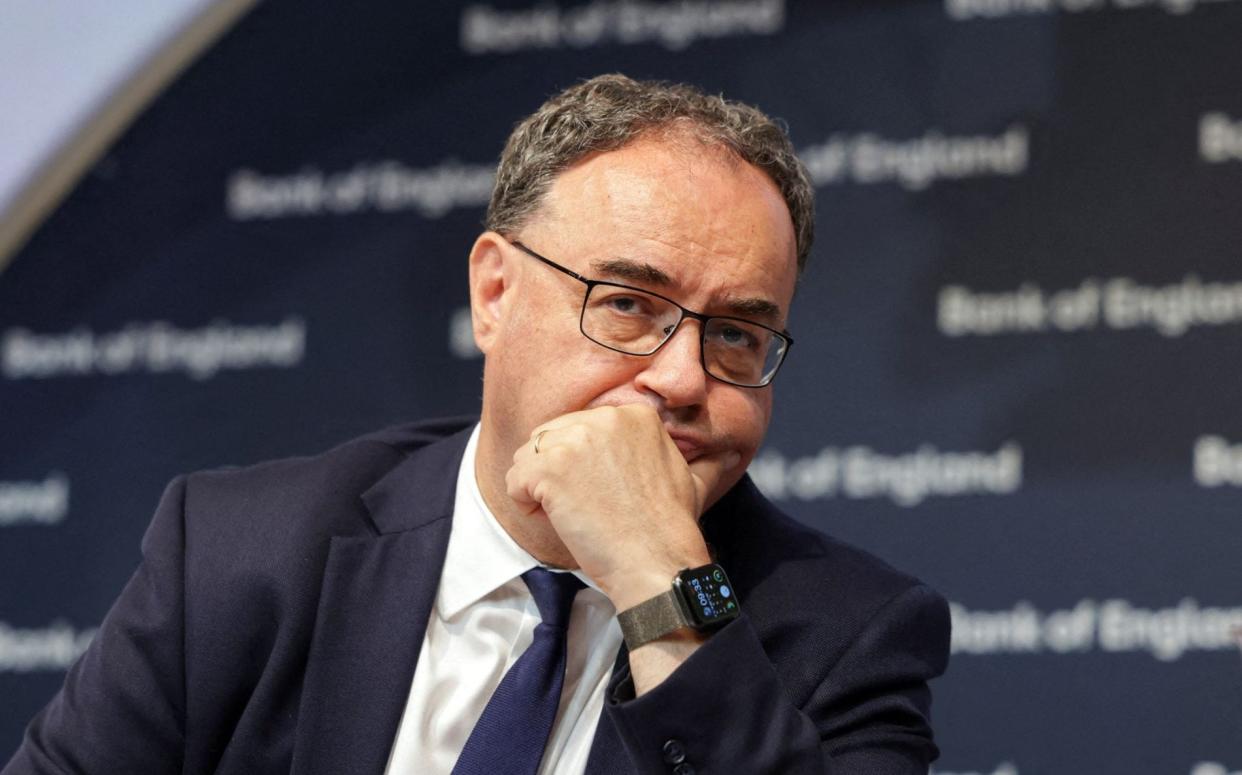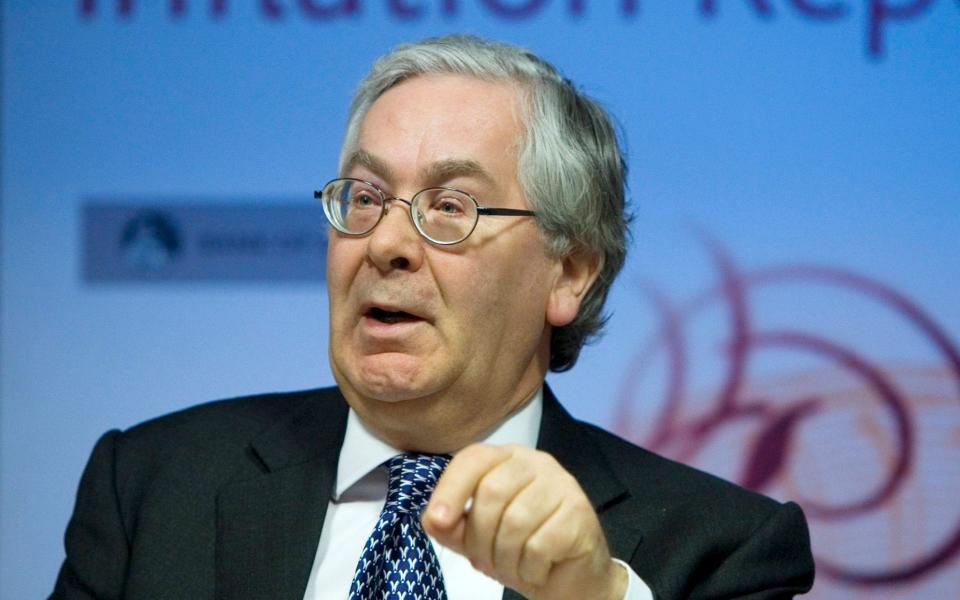Lord King’s attack on the Bank of England doesn’t go far enough

Lord King of Lothbury is to be the next president of the Marylebone Cricket Club. The former Governor of the Bank of England will, for a year from October, oversee the world’s most influential cricketing body, owner of the Lord’s ground and guardian of the laws of the game.
This appointment makes sense – King has long been a noted amateur player and hugely knowledgeable fan of cricket. And for almost 20 years, the Chance to Shine charity he co-founded has tackled the decline of cricket in state schools.
Alongside his MMC news, King also gave a speech in the Lords last week, which should be read by economic policymakers everywhere. Having run the Bank of England from 2003 to 2013, he says the Bank’s Monetary Policy Committee (MPC) has more recently been plagued by “group-think”, with the nine economists who set interest rates helping to drive UK inflation up to 11.1pc in the autumn of 2022, a 40-year high.
“It is troubling,” he told fellow peers. “There were no dissenting voices to challenge the view inflation was transitory.”
A “lack of intellectual diversity” on the MPC, he argued, led to a failure to challenge consensus.
The UK’s cost of living crisis was, of course, aggravated by war in Ukraine – which, from February 2022, pushed up global oil and gas prices. Current Governor Andrew Bailey rarely misses an opportunity to blame inflation on Vladimir Putin.
But even before Russia’s invasion, headline UK inflation had climbed to 5.5pc by January 2022, the highest since 1991. It’s that pre-Ukraine inflation surge the MPC wants to forget – having totally failed to predict it and then been so slow to act.
Back in March 2021, when CPI inflation was just 0.7pc, Bailey argued that the MPC’s task was to get inflation back up to the Bank’s 2pc inflation target. This was a serious misreading of the UK economy – and the imminent inflation spike.
As early as December 2020, this column argued that “looming inflation was casting a cloud over the UK’s recovery”. Four months later, as the UK emerged from lockdown, I warned that huge pent-up household and corporate spending, combined with lingering pandemic-related supply-chain blockages and lockdown era money-printing meant “inflation could soon surge”.
The same column identified the Government’s “deep dependence on quantitative easing” (QE) to finance furlough and other Covid-related support schemes as a future “inflation menace”.
Arguing from late 2020 that the Bank should raise interest rates, squeezing inflation as early as possible, I was far from alone. The warning signs were clear – not least the trading patterns of gold, government bonds and commodities – to anyone combining economic literacy with an open mind.
But there were no open minds at the Bank of England – “not a single dissenting vote on the MPC”, as King reminded peers last week. Bailey and his team kept insisting throughout 2021 – in the face of mounting evidence to the contrary – that any rise in UK inflation would be “transitory”, adopting verbatim a script written by the US Federal Reserve.
So UK interest rates were kept ultra-low – allowing inflationary expectations to build further. And by the time the MPC did finally start raising rates, in December 2021, annual inflation was already dangerously high at 5.4pc – approaching three times the official target.
But the extent of the MPC’s “group-think” goes further. For a very long time, there has been no-one on the committee with a deep research interest in, or even a willingness to take seriously, the impact of a growing money supply on inflation.
The MPC’s last recognised monetary expert was Professor Charles Goodhart, who spent just three years on the committee and retired in 2000 –almost a quarter of a century ago.
Since then, and particularly after 2009, when the Bank started its QE money-printing programme in the wake of the global financial crisis, the Treasury-dominated appointments procedure has effectively blocked any monetarist economists from the MPC. That’s because monetarists have been warning for a long time that QE would ultimately cause inflation.
That’s particularly true when it comes to Covid-era QE – not least as the MPC approved more money-printing during the 18 months of on-off lockdown than it did during the decade after 2009.
And while pre-pandemic QE remained largely within the banking system, limiting its inflationary impact, lockdown QE was paid directly to households and firms, via furlough payments and business support loans – feeding directly into the post-pandemic demand wave that caused prices to surge.

During 2020 and 2021, as inflationary dangers grew, there was “no mention of the monetary data in the Bank’s reports”, King told the Lords. “The excessive reliance on models that ignored money altogether was somewhat foolish,” he added.
No one is saying the MPC has an easy job. But it is vital this all-important policymaking group starts to display some genuine cognitive diversity – the most important diversity of all.
The Bank’s failure to heed clear market-related inflationary warning signs, and its institutional aversion to recognising the importance of monetary aggregates, has negatively impacted the lives and livelihoods of millions.
Had the Bank been alive to these dangers, UK rates would have started rising earlier and more decisively – allowing inflation to be tamed with fewer rate rises overall.
The Bank’s main interest rate was increased no fewer than 14 times from December 2021 to August 2023, from 0.1pc to 5.25pc, hammering countless businesses and mortgage-holders. It could have been so different.
By bringing in King as president, someone from outside the cricket establishment, the MMC is to be congratulated for ensuring that differing, but still very valid perspectives will be heard within the game’s policymaking inner sanctum.
It’s a lesson that the Treasury and the Bank of England most urgently need to learn.

 Yahoo News
Yahoo News 
